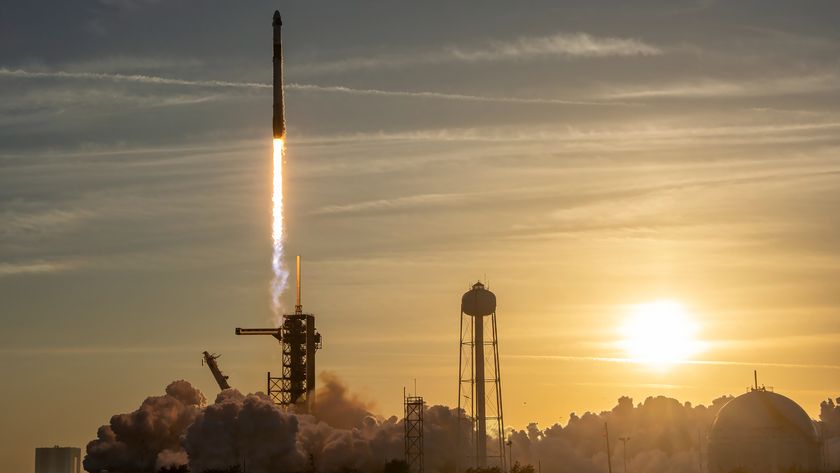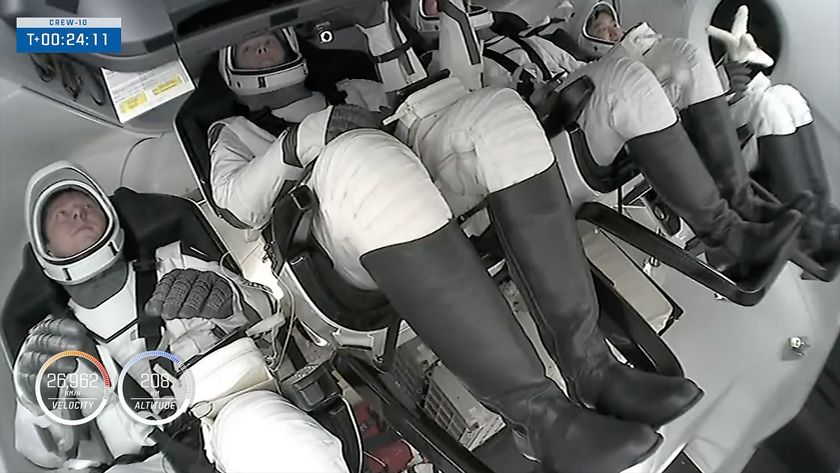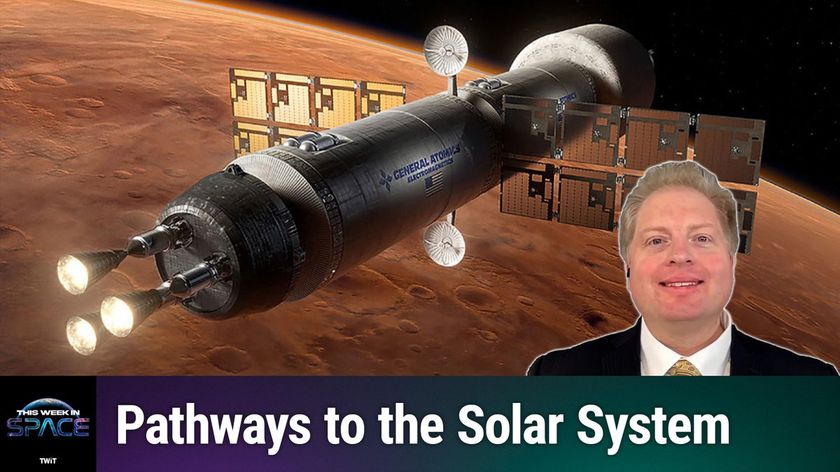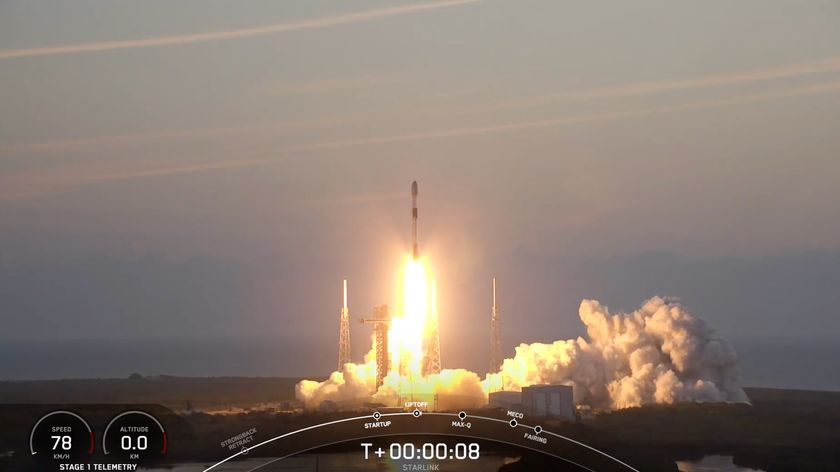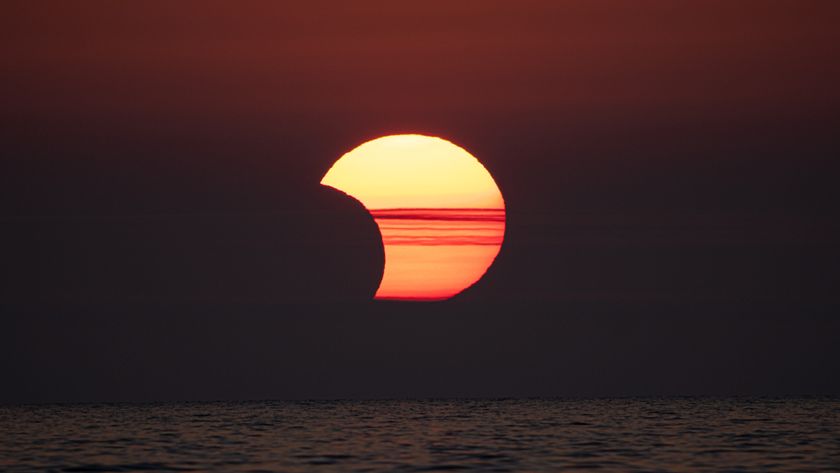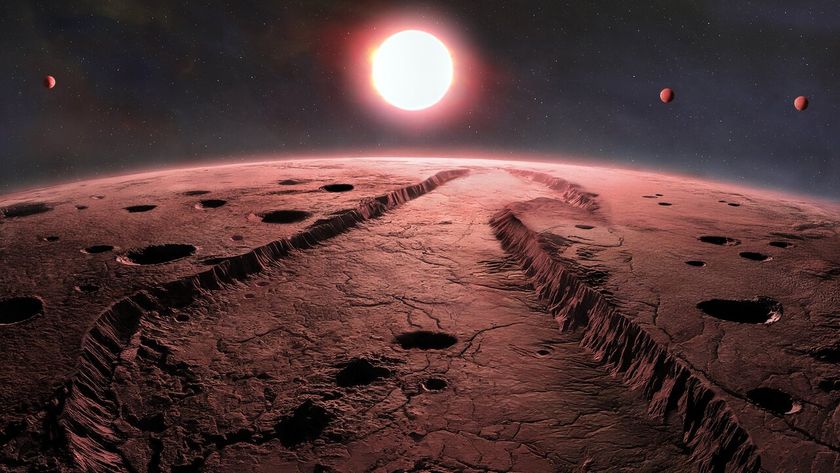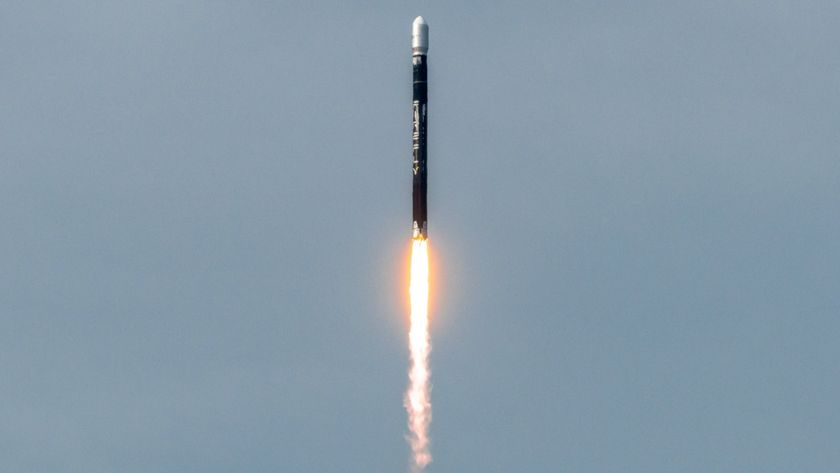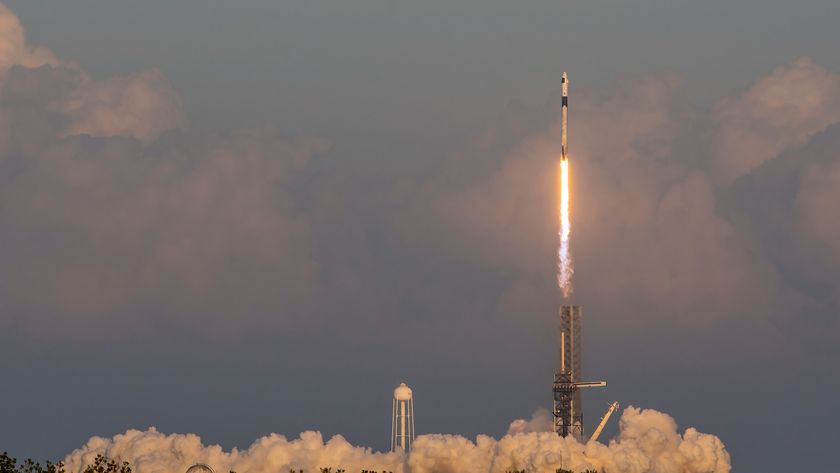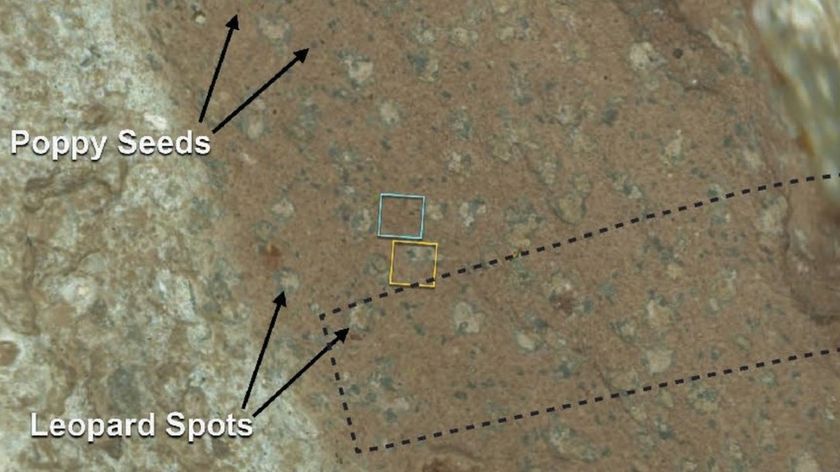New US-Russian Crew Docks at Space Station After Super-Fast Flight
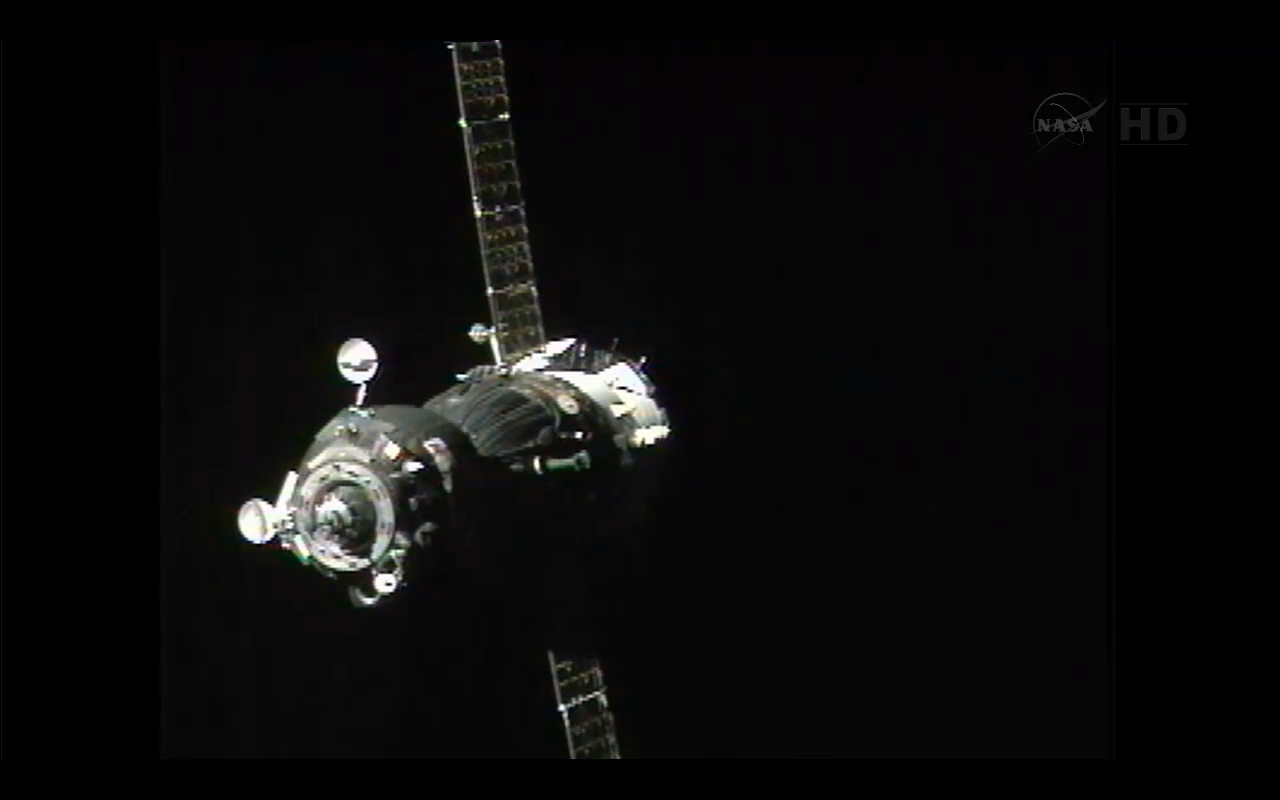
A Soyuz rocket successfully delivered a trio of new residents to the International Space Station on the first-ever "express" flight to the orbiting laboratory.
The Russian rocket carrying NASA astronaut Chris Cassidy and Russian cosmonauts Alexander Misurkin and Pavel Vinogradov docked with the station on time at 10:28 p.m. EDT (0228 March 29 GMT) while both spacecraft flew high over the Pacific Ocean after a history-making six-hour flight.
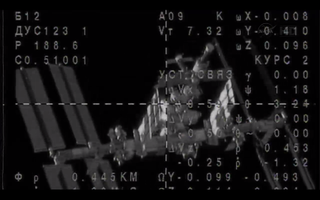
"Expedition 35 now has a six member crew on board the space station,"NASA spokesman Josh Byerly said during the space agency's live comentary of the docking.
It has been a long day for the crew. Because of the launch's accelerated timescale, Misurkin, Vinogradov and Cassidy will not have had the chance to rest for 20 hours by the time they settle in for the first night in their new home.
The Soyuz TMA-08M's launch from the Baikonur Cosmodrome went smoothly with liftoff occurring at 4:43 p.m. EDT (2043 GMT). The three spaceflyers will stay on board the orbiting outpost until they return to Earth in September. [Launch Photos: Soyuz Rocket's 'Express' Flight to Station]
Before now, manned trips to the space station have taken at least two days, but with the docking of this ship just six hours after liftoff, marks the beginning of a new kind of mission that saves time and money, NASA officials have said.
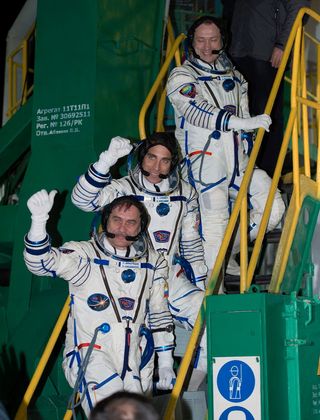
"In my opinion, our mission is just next little step on the way, on the way to the moon, Mars, and I am very happy to do this step," Misurkin said in a preflight interview with NASA.
Get the Space.com Newsletter
Breaking space news, the latest updates on rocket launches, skywatching events and more!
Russia's unmanned Progress cargo ships have made these express dockings before, but using the method for a crewed flight prevents the spaceflyers from spending extra time in a crowded capsule. Officials with the NASA also explained that these trips save money because a quicker flight means that Mission Control personnel will be on duty for a shorter amount of time.
The three newest residents of the International Space Station have a jam-packed stay ahead of them. A Russian Progress cargo spacecraft is scheduled to dock with the station at the end of May, and the crewmembers will perform spacewalks as well as help run the more than 100 science experiments while on board.
"We as human beings, we like to explore; there’s frontiers of knowledge, there’s frontiers of physical space that I think we all just feel compelled to go to and each one of those different types of environments, be it space or high mountains or the water, all bring different aspects to what we can learn, what can we can bring back to better life in either a small spectrum of our lives or in the broader sense of it," Cassidy said during an interview with NASA. "That’s how I think the space program is."
The three other residents of the station — Canadian astronaut Chris Hadfield, Tom Marshburn of NASA and Russian cosmonaut Roman Romanenko — will fly back to Earth in May. Vinogradov is set to take command upon their departure.
Cassidy was a crewmember on board the STS-127 space shuttle mission in 2009. Vinogradov flew to the Russian Mir space station in 1997 and the International Space Station in 2006. This is Misurkin's first time in orbit.
Follow Miriam Kramer @mirikramer and Google+. Follow us @Spacedotcom, Facebook and Google+. Original article on SPACE.com.
Join our Space Forums to keep talking space on the latest missions, night sky and more! And if you have a news tip, correction or comment, let us know at: community@space.com.

Miriam Kramer joined Space.com as a Staff Writer in December 2012. Since then, she has floated in weightlessness on a zero-gravity flight, felt the pull of 4-Gs in a trainer aircraft and watched rockets soar into space from Florida and Virginia. She also served as Space.com's lead space entertainment reporter, and enjoys all aspects of space news, astronomy and commercial spaceflight. Miriam has also presented space stories during live interviews with Fox News and other TV and radio outlets. She originally hails from Knoxville, Tennessee where she and her family would take trips to dark spots on the outskirts of town to watch meteor showers every year. She loves to travel and one day hopes to see the northern lights in person. Miriam is currently a space reporter with Axios, writing the Axios Space newsletter. You can follow Miriam on Twitter.
